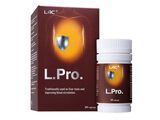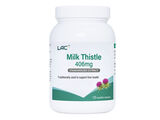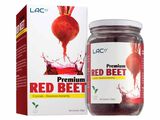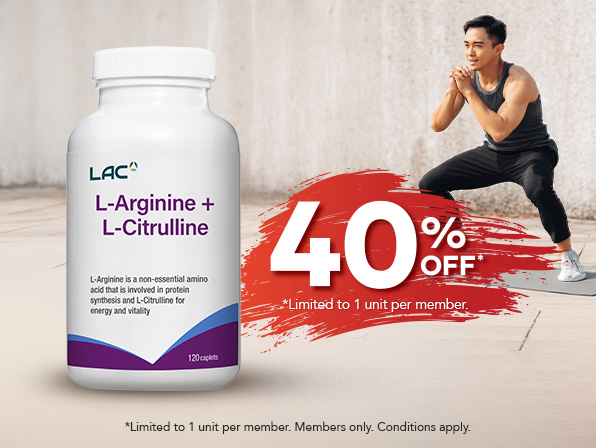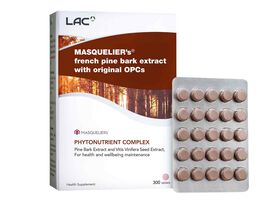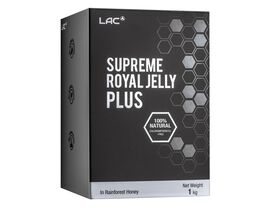Your Liver Deserves Your Love, too

7 Tips to Safeguard Your Liver Health.
Did you realize that fatty liver is caused by more than just alcohol? If you believe you are healthy as long as you don’t smoke and drink, you should think about how your other lifestyle choices affect your liver. Liver disease may occur in teetotalers, which is called Non-Alcoholic Fatty Liver Disease (NAFLD).
There are two main types of NAFLD, which are nonalcoholic fatty liver (NAFL) and nonalcoholic steatohepatitis (NASH). NAFLD comprises a wide range of liver conditions from excessive fat buildup in the liver, inflammation, fibrosis, to cirrhosis, and may lead to significant problems such as liver failure or cancer. Fatty liver is frequently asymptomatic in the early stages; however, it can be life-threatening as it progresses to cirrhosis.
So, what causes a fatty liver in a non-drinker?
- Obesity
Despite Malaysia has a diverse array of fruits and vegetables, Malaysians tend to favor traditional comfort foods that are higher in calories, saturated fats, and sodium. Obesity risks may increase due to these unhealthy diets.
NAFLD is primarily caused by obesity. Excess fat will build up in the body and pressure the liver, causing it to enlarge and damage healthy liver cells. The continuous swelling may eventually produce scar tissues in the liver when new fat-containing cells rebuild. Obesity, in combination with other risk factors such as diabetes, raises the risk of NAFLD.
- Physical Inactivity
In Malaysia, eating too much and moving too little has been identified as a major public health concern. Sedentary lifestyles have become increasingly popular due to technology advancements, with people preferring to sit or lie down rather than exercise during their leisure time. People find it difficult to exercise due to lack of motivation, no workout buddies, and no time, according to a survey done by Cilisos and Fitness First Malaysia poll of 3,779 Malaysian respondents.[1]
The fact is that if you overconsume fats and sugar daily and don’t expend the excess energy through exercise, the extra energy will be stored as fat in the body, increasing the amount of fatty liver. The liver’s function will be affected by the accumulation of lipids over time.
- Psychological Distress
The psychological impact of the Covid-19 pandemic is significant. Factors that led to stress include the loss of loved ones, job uncertainty, financial distress, and family issues. The work-from-home arrangement has also been reported as one of the causes of stress due to social isolation, difficulty in setting boundaries, too many distractions, and lack of structure.[2]
Chronic stress not only causes one to feel fatigue, muscle tension, depression, and anxiety, it also led to unhealthy behavior, such as consumption of tobacco, inadequate nourishment, and alcohol intake, which are highly associated with fatty liver.
- Sleep deprivation
Modern lifestyle and technology development have seriously impacted the sleep cycle among nations. According to a survey, Malaysian have been reported not having sufficient sleep due to stress, lifestyle choices, work obligations, etc. 9 out of 10 Malaysians encounter insomnia, while over 53% of Malaysian employees did not achieve the minimum 7 hours of sleep.[3]
Sleeping habits and health are correlated. A minimum of 7 hours of sleep per night is required to prevent liver damage. Studies showed that not having enough sleep can affect the liver’s ability to produce glucose and process insulin, which increases the risk of fatty liver.[4]
- Cigarette Smoking (CS)
Here is another reason to quit smoking. Smoking increases the risk of liver cancer and cirrhosis. The toxin chemicals in the cigarette, which name as cytotoxic, promote the production of cytokines and cause inflammation to further damage the liver.[5]
- Aging
NAFLD is common in people with metabolic syndromes, especially in the elderly population. People who are diagnosed with metabolic syndromes encounter conditions such as insulin resistance, high blood pressure, high level of cholesterol, and triglycerides.[6] For women who experience menopause, the estrogen became weak and unable to protect the body from the risk of fatty liver. Thus, it is important to balance your hormone before menopause hits.[7]
- Taking certain prescription medications
Types of drugs reported to increase the risk of fatty liver include tamoxifen, corticosteroids, antidepressant, antipsychotics, amiodarone, and methotrexate.[8]
- Hepatitis
Hepatitis B and C are the leading causes of liver inflammation that can lead to liver cancer. These two viral viruses are transmitted through sexual contact and items that are possibly contaminated with blood, such as razors, toothbrushes, needles, and syringes. Pregnant women should take extra precautions as hepatitis B and C infections can pass to their infants at birth. However, it will not spread through breastfeeding or casual contact. [9]
Unfortunately, none of the medication is approved and available to cure fatty liver. However, the liver has an amazing ability to repair itself. It is possible to reduce your risks and even reverse NAFLD if you take care of your liver with these seven essential tips starting today!
1. Select healthy diet
A healthy balanced diet is vital to get rid of diabetes, obesity and may reverse the early stage of fatty liver. Calculate your total daily calorie intake and strictly follow your diet plan to lose weight. Consume more protein, high-fiber whole grains, and plant-based food such as vegetables, fruits, etc. Leafy green vegetables contain a high level of glutathione- a powerful antioxidant that helps to detox your liver and keep your liver functioning as usual.[10] Food that contains omega-3 fatty acids is also recommended in your diet to lower cholesterol and triglyceride levels. Reduce intake of food and beverages that contain high saturated fat, added sugar, refined salts, and carbohydrates, such as rice, snacks, fried foods, and pastry. Hydration is essential. Plenty of water aids to remove the toxins from the liver and keeping your body hydrated.
2. Active lifestyle
Regular exercise accompanied by a healthy diet is the key to maintaining a healthy weight and helping your liver to function properly. There is research showing that 150 minutes of moderate-intensity exercise such as aerobic exercise, brisk walking, and weight training weekly have positive effects on fat reduction in the liver among NAFLD patients.[11] Aerobic exercise strengthens the heart muscle and improves blood flow in the body; while weight training increases lean body mass and prevents the buildup of excess body fat.
3. Adequate hours of sleep
According to the National Sleep Foundation, 7 to 9 hours of sleep per night is to help to body to remain healthy. For people above the age of 65 should get a minimum of 7 hours of sleep per night.[12] If you have trouble falling asleep at night, try to plan your physical activity in the daytime and limit your daytime nap to 20 minutes or less to prevent insomnia. Avoid caffeine as it helps you to stay awake throughout the night.[13]
4. Handle stress in a healthy way
Hold space for yourself. Do activities you enjoy during leisure time. Talk to others who you trust and are concerned about your feeling. Connect with your community- whether at work, religious organizations, or through activities. The relationship gains through shared activities allows you to feel supported in a difficult time. Alternatively, practice deep breathing and use guided meditation to distract yourself from the stress in daily life.
5. Quit smoking
It is difficult to go cold turkey when you have been smoking for a long period. Nicotine is the main addictive drug that makes quitting hard. However, you should quit smoking for the sake of your liver health. Chew on sugarless gum or hard candy helps to resist tobacco craving. If smoking is your way to deal with stress, take the edge off stress by practicing relaxation techniques, such as listening to calming music, yoga, or even a short burst of physical exercises, such as walking outside. Alternatively, talk to your doctor for any recommended nicotine replacement therapy.[14]
6. Protect yourself from viral hepatitis
Vaccination is the best way to prevent Hepatitis B. Unfortunately, no vaccine exists for Hepatitis C. Always remember never to share your personal belongings such as a toothbrush, nail scissors, and razors as viruses are transmitted through these items easily. Practice safe sex by using condoms to reduce the risk of having sex with someone who has hepatitis.[15]
7. Consult with healthcare professional
Take medication or drugs only as prescribed by the doctor to protect your liver. Always ask before you try any natural remedies or supplements. Just because it is recommended by relatives and friends, it doesn’t mean it is safe to be consumed.
Live a happy life with a healthy liver. A healthy liver can increase your life expectancy, which implies that you will have more time creating memories with your loved ones.
[1] https://news.weill.cornell.edu/news/2018/11/high-fat-diet-has-lasting-effects-on-the-liver
[2] https://www.straitstimes.com/asia/se-asia/malaysians-struggle-with-long-wfh-hours-during-covid-19-pandemic
[3] https://themalaysianreserve.com/2020/03/10/sleep-education-in-need-as-disorders-are-escalating-in-the-region/
[4] https://www.sciencedaily.com/releases/2018/09/180905083901.htm
[5] https://www.ncbi.nlm.nih.gov/pmc/articles/PMC5788091/
[6] https://my.clevelandclinic.org/health/diseases/15831-fatty-liver-disease
[7] https://umsc.my/umsc_news/fatty-liver-the-silent-epidemic/
[8] https://www.ncbi.nlm.nih.gov/books/NBK547860/#:~:text=Drugs.,and%2C%20most%20commonly%2C%20tamoxifen.
[9] https://www.healthline.com/health/hepatitis-b#prevention
[10] https://www.webmd.com/hepatitis/ss/slideshow-best-and-worst-foods-for-your-liver
[11] https://www.frontiersin.org/articles/10.3389/fnut.2021.734859/full
[12] https://www.sleepfoundation.org/how-sleep-works/how-much-sleep-do-we-really-need
[13] https://health.gov/myhealthfinder/topics/everyday-healthy-living/mental-health-and-relationships/get-enough-sleep
[14] https://www.mayoclinic.org/healthy-lifestyle/quit-smoking/in-depth/nicotine-craving/art-20045454
[15] https://britishlivertrust.org.uk/information-and-support/liver-health-2/love-your-liver/
